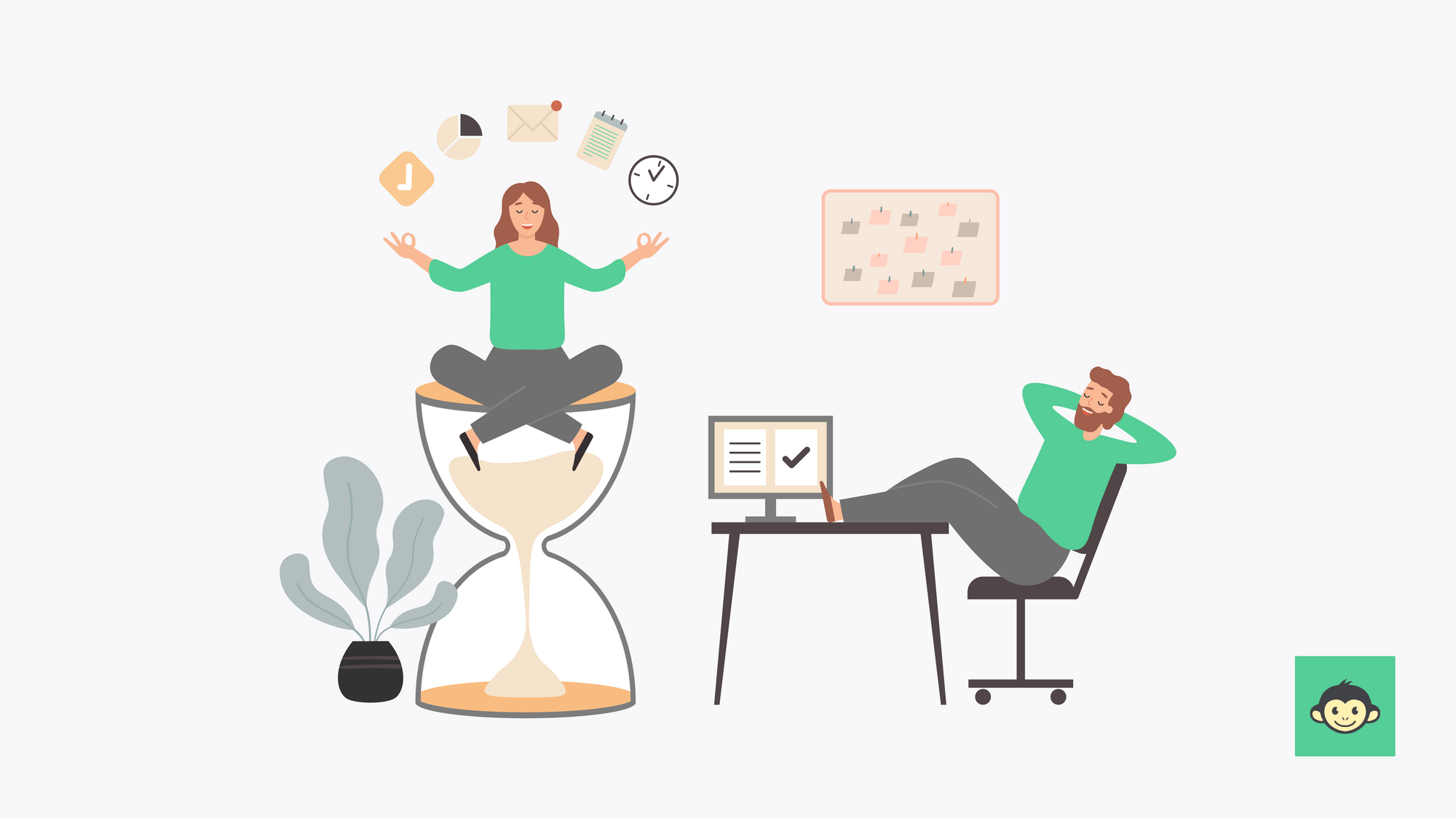Finding Balance: Mastering the Art of Healthy Work-Life Harmony
Struggling to balance work, life, and health? Learn effective tips for managing all three effortlessly.
In today’s fast-paced world, finding equilibrium between work, personal life, and health can be a daunting task. Many individuals find themselves overwhelmed by the demands of their professional responsibilities, personal commitments, and the need to maintain a healthy lifestyle. However, with the right strategies and mindset, it is possible to juggle these aspects of life with ease.
By implementing practical tips and making small changes to your daily routine, you can achieve a harmonious balance that promotes overall well-being and success. This blog will explore effective ways to prioritize your tasks, manage your time efficiently, and prioritize self-care to ensure you can thrive in all areas of your life.
The Quest For Work-life Harmony
Striking a balance between work, personal life, and health is an ongoing challenge for many individuals. The quest for work-life harmony is essential for overall well-being and satisfaction. It involves navigating the demands of a career while still making time for personal pursuits and maintaining a healthy lifestyle.
Challenges In Achieving Balance
Balancing the demands of a career with personal commitments and well-being poses several challenges. Time management becomes a critical factor, as individuals strive to allocate sufficient time to work, family, relaxation, and self-care. The pressure to excel in the professional realm while also nurturing personal relationships and health can create stress and anxiety.
Redefining Success
Redefining success is a crucial aspect of attaining work-life harmony. Rather than solely focusing on career achievements, individuals are recognizing the significance of personal fulfillment, happiness, and wellness. This shift in perspective allows for a more holistic approach to success, emphasizing the importance of work-life balance and overall satisfaction.
The Myth Of Perfect Balance
When it comes to juggling work, life, and health, many people strive for the elusive goal of perfect balance. However, the truth is that this idealized notion of perfect equilibrium is often unattainable. The Myth of Perfect Balance perpetuates the belief that every aspect of life should be perfectly aligned at all times, leading to unnecessary stress and pressure.
Why Striving For Perfection Can Be Harmful
Striving for perfection can be harmful because it sets unrealistic expectations, leading to feelings of inadequacy and constant stress. It can also prevent individuals from appreciating the progress they have made, as they are constantly focused on an unattainable standard. This mindset can have detrimental effects on mental and physical well-being.
Accepting The Ebb And Flow Of Life
Accepting the ebb and flow of life allows individuals to embrace the natural fluctuations and unpredictability of daily life. By acknowledging that balance is not a static state but rather a dynamic process, individuals can adapt to the ever-changing demands of work, personal life, and health. This mindset encourages flexibility and resilience, fostering a healthier approach to managing life’s challenges.
Signs You Need Better Work-life Harmony
Physical And Emotional Red Flags
Feeling constantly fatigued and irritable, experiencing sleep disturbances, and dealing with unexplained physical symptoms can indicate a lack of balance between work and personal life.
Neglecting your physical health and experiencing frequent headaches, stomach issues, and muscle tension might be signs of an imbalance.
Relationships And Social Life Impact
Strained relationships, reduced quality time with loved ones, and a declining social life can all be attributed to an unhealthy work-life balance.
Isolating yourself from friends and family, experiencing conflicts with loved ones, and feeling disconnected from your social circle are all red flags.

Credit: www.culturemonkey.io
Setting Boundaries For Work And Life
Establishing clear boundaries between work and personal life is crucial for maintaining a healthy balance. By setting boundaries, you can protect your time, energy, and well-being.
Tips For Effective Boundary Setting
- Define your work hours and stick to them consistently.
- Communicate your boundaries clearly to colleagues and clients.
- Allocate specific time for relaxation and personal activities.
Learning To Say No
- Practice asserting your limits without feeling guilty.
- Be selective about taking on additional tasks or projects.
- Remember that saying no is a form of self-care.
The Role Of Technology In Work-life Harmony
Technology has revolutionized the way we work, but it has also made it challenging to maintain a work-life balance. With the use of technology, it is possible to find a balance and manage work, life, and health with ease. By utilizing tools like time management apps and setting clear boundaries, we can create a harmonious work-life balance.
Tools To Enhance Productivity
In today’s fast-paced world, technology has become an integral part of our lives. From smartphones to laptops, we are always connected to the digital world. While this has its benefits, it can also lead to a lack of work-life balance. However, with the right tools, technology can help us achieve harmony between our personal and professional lives. One of the most effective tools for enhancing productivity is time-tracking software. This software can help you keep track of how much time you spend on each task, allowing you to identify areas where you may be wasting time. Additionally, project management tools like Trello or Asana can help you prioritize tasks and collaborate with your team more efficiently. Another useful tool is the Pomodoro technique, which involves working for a set period of time (usually 25 minutes) and taking a short break before starting again. This technique can help you stay focused and avoid burnout.When To Disconnect
While technology can be a valuable asset, it’s important to disconnect from time to time. This can help you recharge and avoid burnout. But when should you disconnect? One approach is to set clear boundaries for when you are available for work-related tasks. For example, you could turn off notifications after a certain time or on weekends. Additionally, taking regular breaks throughout the day can help you stay focused and avoid the temptation to check your phone or email. It’s also important to set aside time for self-care activities, such as exercise, meditation, or spending time with loved ones. These activities can help you recharge and maintain a healthy work-life balance. In conclusion, technology can be a powerful tool for enhancing productivity and achieving work-life harmony. By using time-tracking software, project management tools, and the Pomodoro technique, you can stay focused and efficient. But it’s also important to disconnect from technology and prioritize self-care activities to avoid burnout.
Credit: blog.heartmanity.com
Prioritizing Self-care In Your Routine
Maintaining a balance between work, life, and health can be challenging. Prioritizing self-care in your routine can help you achieve this balance. Simple habits like getting enough sleep, exercising regularly, and taking breaks can go a long way in improving your overall well-being.
Finding balance between work, life, and health can be challenging, but it’s essential to prioritize self-care in your routine. When you take care of yourself, you have more energy and focus to tackle your daily tasks. Self-care practices can be simple and easy to incorporate into your daily routine.Simple Self-care Practices
Incorporating simple self-care practices into your routine doesn’t need to be complicated. Taking a few minutes each day to do something you enjoy can make a big difference. Some simple self-care practices include:- Taking a walk outside
- Reading a book
- Meditating
- Listening to music
- Taking a bath
- Journaling
The Importance Of Regular Exercise
Regular exercise is another essential aspect of self-care. Exercise has numerous benefits for your body and mind, including reducing stress, increasing energy levels, and improving overall health. Incorporating exercise into your routine may seem daunting, but it doesn’t have to be. You can start with simple exercises like walking, yoga, or stretching. As you become more comfortable, you can increase the intensity and duration of your workouts. In conclusion, prioritizing self-care in your routine is crucial for achieving balance in your life. Incorporating simple self-care practices and regular exercise can help you feel more energized, focused, and productive. Remember to take care of yourself, so you can take care of everything else.Achieving Harmony At Home And Work
Striking a balance between home and work life is crucial for overall well-being. It’s essential to create harmony in both areas to lead a fulfilling and healthy life.
Strategies For Home Life Improvement
- Establish clear boundaries between work and personal time.
- Prioritize tasks and allocate time for family and self-care.
- Create a comfortable and organized living space.
Fostering A Supportive Work Environment
- Encourage open communication and collaboration among team members.
- Promote a culture that values work-life balance.
- Provide resources for employee well-being and professional development.
Measuring Your Progress Towards Harmony
Embark on a journey to achieve harmony by tracking your progress in balancing work, life, and health effortlessly. Measure your success in finding equilibrium through mindful practices and intentional choices for a more fulfilling lifestyle.
Setting Realistic Goals
Start with small, achievable objectives to avoid feeling overwhelmed.
Celebrating Small Victories
Recognize and reward yourself for each milestone reached in your journey.
Setting Realistic Goals
Begin with small, attainable targets to prevent becoming stressed.
Celebrating Small Victories
Acknowledge and appreciate each achieved milestone in your path.

Credit: hbr.org
Frequently Asked Questions
Faq 1: How Can I Effectively Manage My Work-life Balance?
Maintaining a healthy work-life balance requires prioritization and time management. Set boundaries, establish a routine, and delegate tasks when possible. Make time for self-care and relaxation to avoid burnout. Remember, it’s okay to say no and ask for help when needed.
Faq 2: What Are Some Strategies For Staying Healthy While Juggling Work And Life?
Staying healthy amidst a busy schedule starts with small, consistent habits. Incorporate physical activity into your routine, eat nutritious meals, and prioritize sleep. Take short breaks throughout the day to recharge and practice stress management techniques like meditation or deep breathing.
Faq 3: How Can I Avoid Feeling Overwhelmed With Multiple Responsibilities?
To avoid feeling overwhelmed, it’s important to streamline and simplify your tasks. Prioritize your to-do list, break down larger tasks into smaller ones, and set realistic expectations for yourself. Learn to delegate and ask for support when needed, and remember to take breaks and practice self-care regularly.
Conclusion
In the hustle and bustle of our modern lives, finding balance between work, personal life, and our health can often feel like an impossible task. However, by prioritizing self-care, setting boundaries, and managing our time effectively, we can create a harmonious equilibrium.
Remember, taking care of ourselves is not a luxury, but a necessity. By finding balance, we can lead happier, healthier, and more fulfilling lives. So, let’s start juggling the demands of life with ease and make our well-being a top priority.